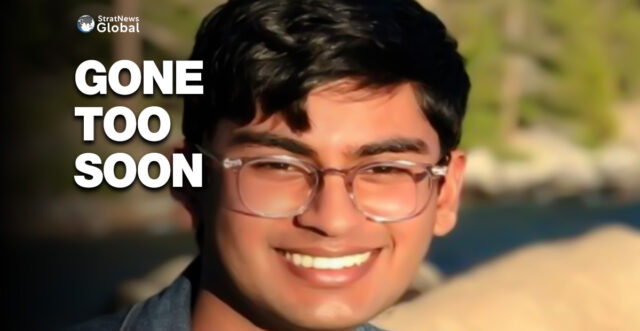
Suchir Balaji, the Indian-origin OpenAI whistleblower and a former employee, was found dead in his apartment in San Francisco in the United States.
The news of the 26-year-old’s death drew a monosyllabic reaction from Elon Musk who is engaged in a legal battle with the company.
Balaji previously made headlines after he accused Open AI of violating US copyright law.
According to media reports, the Indian-origin techie died by suicide.
The city’s Chief Medical Examiner was quoted as saying in a statement by TechCrunch: “The Office of the Chief Medical Examiner (OCME) has identified the decedent as Suchir Balaji, 26, of San Francisco.
The manner of death has been determined to be suicide.”
Balaji was found dead in his Buchanan Street apartment on November 26, a spokesperson for the San Francisco Police Department told TechCrunch.
Officers and medics were called to his residence in the city’s Lower Haight district to perform a wellness check on the former OpenAI researcher.
No evidence of foul play was found during the initial investigation, police told the tech website.
Suchir Balaji’s LinkedIn page shows he worked with OpenAI from November 2020 to August 2024.
OpenAI, the tech firm which developed ChatGPT, said it was ‘devastated’ to know about the death of the techie.
“We are devastated to learn of this incredibly sad news today and our hearts go out to Suchir’s loved ones during this difficult time,” said an OpenAI spokesperson in an email to TechCrunch.
Billionaire Elon Musk reacted to the death of the techie and posted a cryptic message on X.
Elon Musk and Sam Altman co-founded OpenAI in 2015.
Musk later left the company and founded a rival startup xAI.
In his interview with The New York Times, Suchir Balaji earlier said he left OpenAI because he no longer wanted to contribute to technologies that he believed would bring society more harm than benefit.
According to reports, he even alleged that Open AI was violating copyright law.
Speaking on the issue of fair use and generative AI, Balaji earlier wrote on X, “To give some context: I was at OpenAI for nearly 4 years and worked on ChatGPT for the last 1.5 of them. I initially didn’t know much about copyright, fair use, etc. but became curious after seeing all the lawsuits filed against GenAI companies.”
“When I tried to understand the issue better, I eventually came to the conclusion that fair use seems like a pretty implausible defense for a lot of generative AI products, for the basic reason that they can create substitutes that compete with the data they are trained on,” he said.
“I have written up the more detailed reasons for why I believe this in my post. Obviously, I’m not a lawyer, but I still feel like it’s important for even non-lawyers to understand the law — both the letter of it, and also why it’s actually there in the first place,” the techie posted on X.
“That being said, I don’t want this to read as a critique of ChatGPT or OpenAI per se, because fair use and generative AI is a much broader issue than any one product or company. I highly encourage ML researchers to learn more about copyright — it’s a really important topic, and a precedent that’s often cited like Google Books isn’t actually as supportive as it might seem,” Balaji wrote on X.
(With inputs from Reuters)




